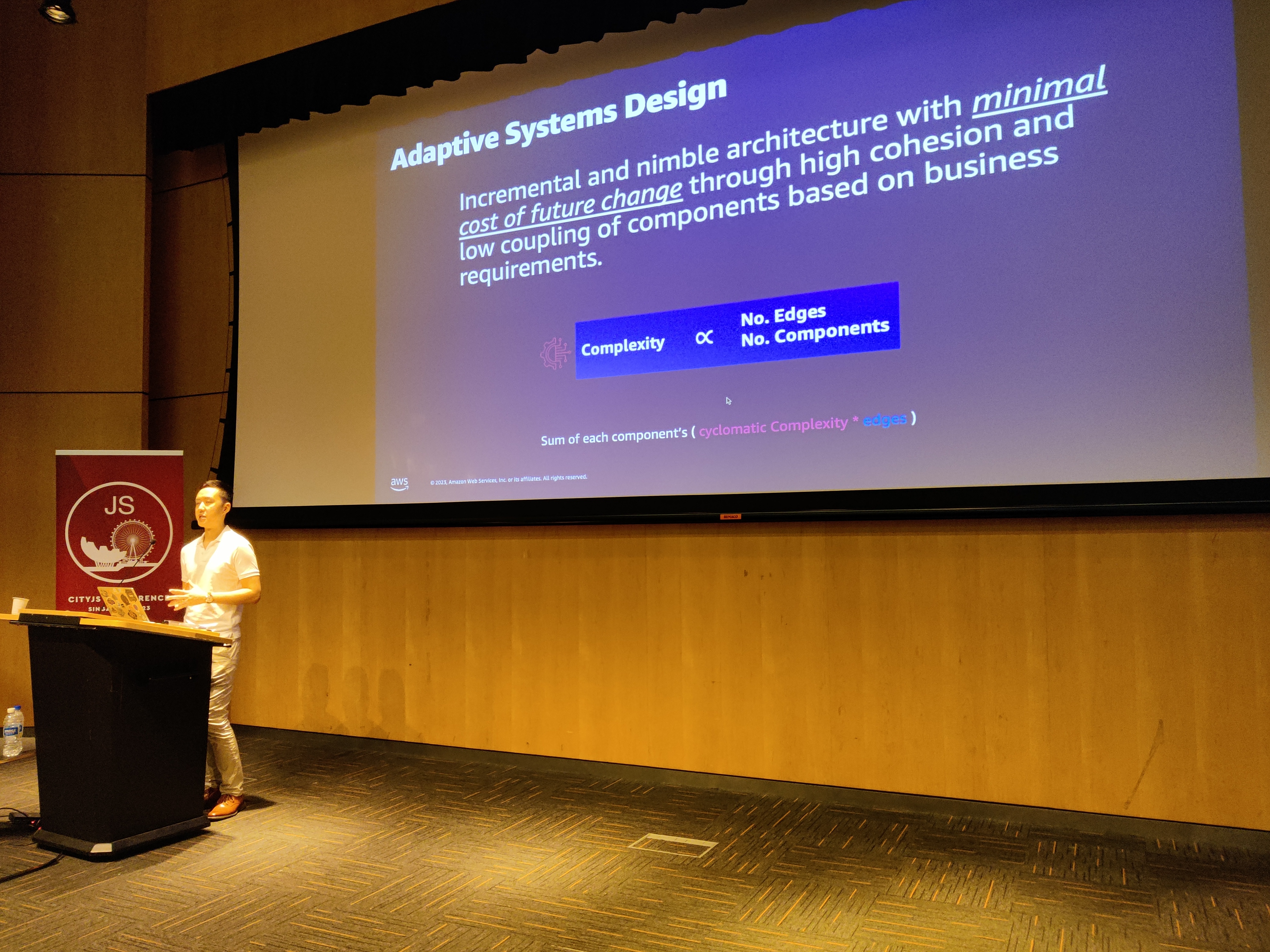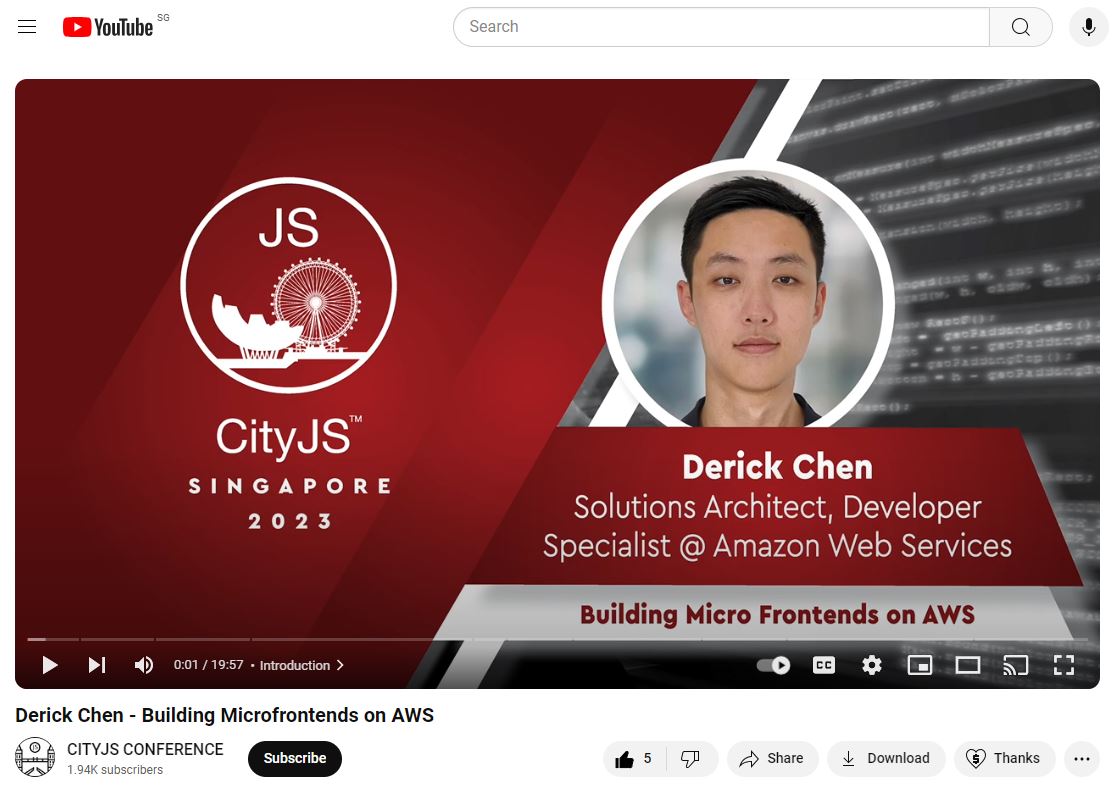July 28, 2023 Link to heading
Ensuring that software design and architecture remain adaptable to the evolving needs of businesses and users is crucial to avoid costly and time-consuming refactoring and rewrites. Modern applications can and should stay modern, and this requires continuous effort and innovative thinking.
Last Friday, I had the pleasure of discussing these concepts and methods of Adaptive System Design with over 260 passionate JavaScript developers at CityJS Conference Singapore. The event was a fantastic opportunity to share insights, exchange ideas, and learn from some of the brightest minds in the industry.

Modern Front-End Applications: Micro-Frontends and Module Federation Link to heading
In my presentation, I delved into the architecture of modern front-end applications, focusing on micro-frontends and Module Federation. These concepts are pivotal in building scalable, maintainable, and adaptable web applications.

Micro-Frontends Link to heading
Micro-frontends extend the principles of microservices to the front-end world. By breaking down a monolithic front-end application into smaller, manageable pieces, each piece can be developed, tested, and deployed independently. This approach allows different teams to work on different parts of the application simultaneously, reducing dependencies and speeding up development cycles.
Module Federation Link to heading
Module Federation, a feature of webpack 5, enables dynamic loading of separately deployed code at runtime. This innovation allows micro-frontends to share code and dependencies without the need for tightly coupled integrations. Teams can independently deploy updates to their modules, leading to faster and more efficient release cycles. Module Federation enhances the adaptability of front-end applications by promoting reusability and reducing redundancy.
The Importance of Adaptive System Design Link to heading
Adaptive System Design is about creating architectures that can evolve with changing requirements, ensuring long-term sustainability and reducing technical debt. By adopting these principles, developers can create systems that are more resilient, easier to maintain, and capable of meeting future demands.
Key Takeaways from Fellow Speakers Link to heading
The conference featured several inspiring talks from my fellow speakers, each bringing a unique perspective to modern software development:
-
Zackary Jackson, Creator of Module Federation: Zackary introduced the concept of infrastructureless development, emphasizing that developers should focus on building rather than deploying. He described the superposition of infrastructure that converges to fulfill requests, highlighting a future where deployment complexities are abstracted away.
-
Kyle Simpson, Author of Multiple O’Reilly Titles: Kyle challenged the current state of web applications, questioning why we still need to keep ’re-installing’ web apps. He advocated for truly install-free web applications, emphasizing the importance of local-first web development to improve user experience and performance.
-
Evan You, Founder of Vue: Evan shared his insights on releasing major versions while maintaining an ecosystem of independent builders. He discussed strategies for managing breaking changes and the deprecation process, ensuring that the ecosystem remains stable and developers can adopt new features without disruptions.
Conclusion Link to heading

CityJS Conference Singapore was an inspiring event that reinforced the importance of continuous learning and adaptation in software development. I am grateful for the opportunity to share my knowledge and learn from such an esteemed group of speakers and attendees. Let’s continue to push the boundaries of what’s possible and keep our applications modern and adaptable.
Thank you to everyone who attended and contributed to the discussions. I look forward to seeing how we all apply these ideas to our work and drive the industry forward.